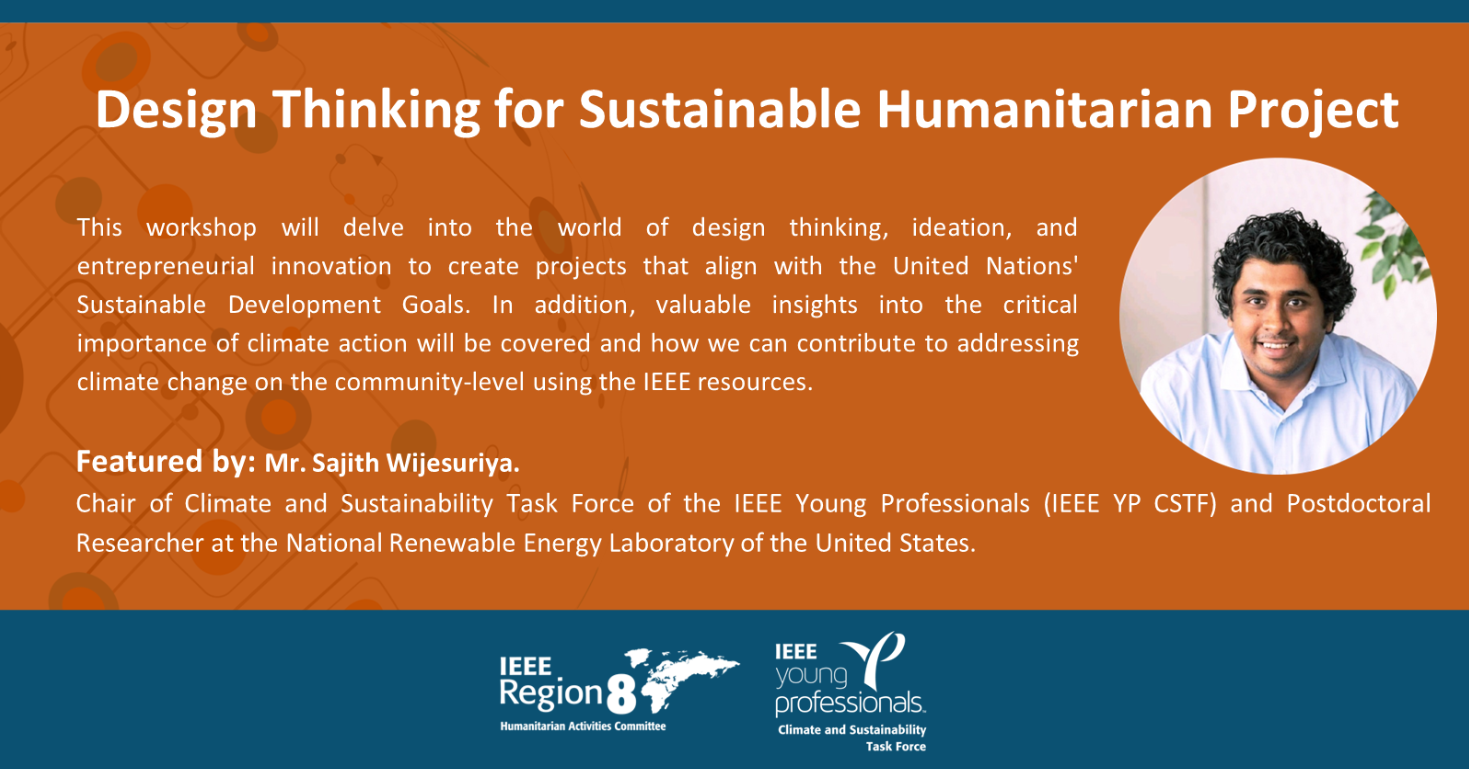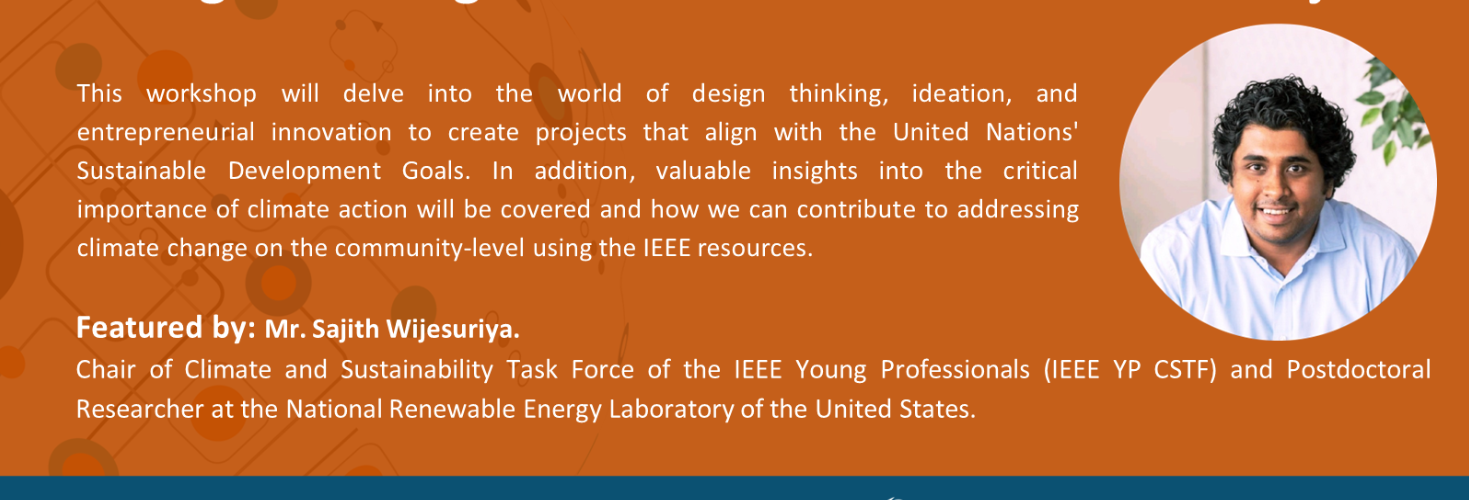Omar Salameh, IEEE Region 8 Humanitarian Activities Committee
In a groundbreaking collaboration between the IEEE Region 8 Humanitarian Activities Committee (HuAC) and the Climate and Sustainability Task Force (CSTF) of the IEEE Young Professionals, an enlightening online workshop titled “Design Thinking for Sustainable Humanitarian Projects” unfolded. This workshop served as a beacon for harnessing design thinking, creativity, and entrepreneurial innovation to craft projects aligned with the United Nations’ Sustainable Development Goals while emphasizing the crucial role of climate action on a community level utilizing IEEE resources. The distinguished main speaker, Mr. Sajith Wijesuriya, the 2023 Chair of IEEE YP CSTF, brought forth invaluable insights derived from his significant experience as a Postdoctoral Researcher at the National Renewable Energy Laboratory, delving into grid decarbonization and resilient human settlements.
The workshop embodied several pivotal elements contributing to its resounding success. It commenced with an introduction by Mr. Omar Salameh, the corresponding member of the IEEE Region 8 Humanitarian Activities Committee, who shed light on the committee’s objectives, its diverse programs, and opportunities available to support SIGHT Groups. Next, Mr Sajith Wijesuriya took the stage to offer an in-depth exploration of IEEE YP CSTF, showcasing its programs and initiatives and aiding volunteers engaged in climate-related activities. Through compelling success stories and collaborations with international organizations, he underscored the influential role of IEEE’s technical voice in addressing the imminent danger posed by climate change.
The highlight of the workshop was Mr Sajith Wijesuriya’s presentation on climate action, spotlighting the global players and essential agreements shaping this field, notably the Paris Agreement. Delving into terms and processes employed by both public and private sectors, he illustrated the critical steps in designing sustainable projects that empower communities to mitigate the effects of climate change and emphasised the importance of amplifying local voices in these initiatives. Furthermore, he generously shared valuable resources to aid participants in understanding evaluation criteria and crafting exceptional project proposals. The workshop concluded with an engaging Q&A session, enabling participants to seek clarification on specific topics and fostering meaningful discussions with the presenters on the path forward.
The workshop was an unequivocal success, with the participation of 73 individuals from diverse backgrounds representing 18 different sections. It is worth noting that 15 SIGHT Groups took part in the workshop, demonstrating a strong interest and commitment to addressing climate change at the community level. The workshop played a critical role in the SIGHT Groups Coordination Workshops initiative, which aims to guide and support SIGHT Groups in overcoming operational and organizational challenges. The success of this initiative is essential to ensuring the optimal functioning of these groups and, in turn, facilitating the achievement of the committee’s broader goals and objectives.


